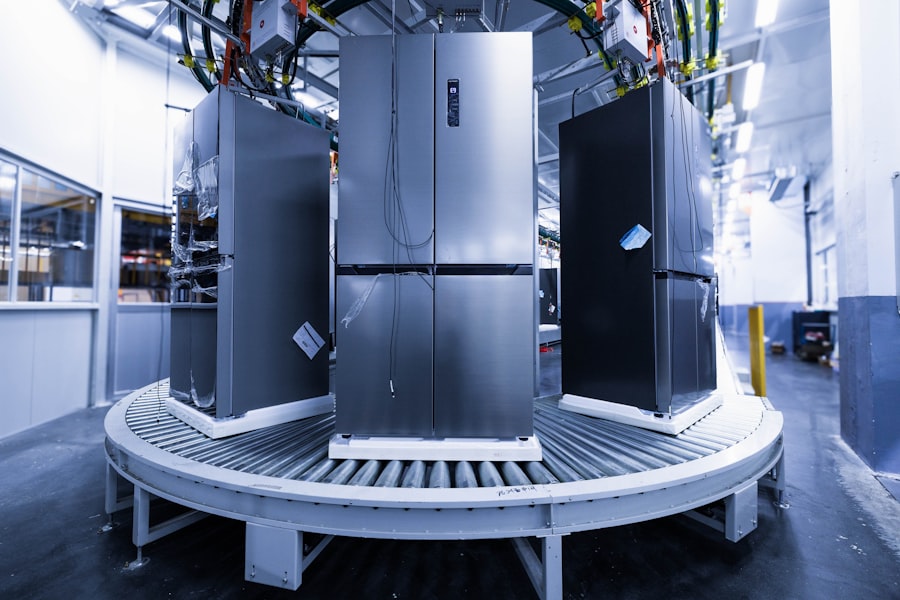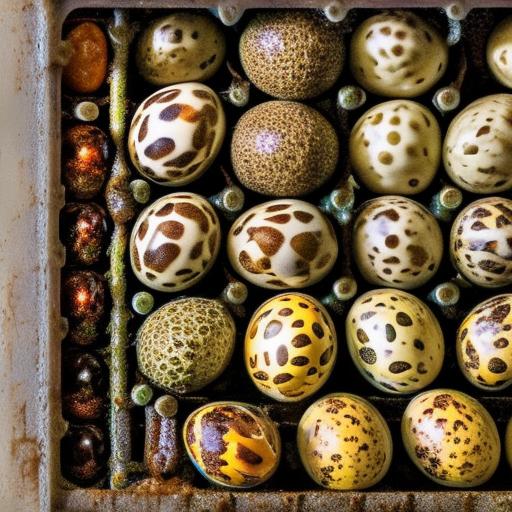Incubating quail eggs is a fascinating process that requires careful attention to detail and the right conditions to ensure a successful hatch. Quail eggs are smaller than chicken eggs, and they require specific care to ensure the embryos develop properly. The process of incubating quail eggs involves placing the eggs in a controlled environment with the right temperature and humidity levels to mimic the conditions of a brooding hen. This allows the eggs to develop and hatch into healthy quail chicks.
To start the incubation process, it’s important to collect fresh quail eggs from healthy, disease-free birds. The eggs should be clean and free from cracks or damage. Once the eggs are collected, they should be stored in a cool, dry place until they are ready to be placed in the incubator. It’s important to handle the eggs with care to avoid jostling or shaking, as this can damage the developing embryos. When it’s time to start the incubation process, the eggs should be placed in an incubator set to the appropriate temperature and humidity levels for quail eggs. Over the course of about 17-18 days, the eggs will undergo the process of incubation, and with proper care, they will hatch into adorable quail chicks.
Incubating quail eggs is a rewarding experience that allows you to witness the miracle of life firsthand. By providing the right conditions and care, you can successfully hatch quail eggs and raise healthy quail chicks. Understanding the basics of incubating quail eggs is essential for anyone interested in hatching their own quail chicks.
Key Takeaways
- Incubating quail eggs requires a stable temperature and humidity level
- Temperature plays a crucial role in the hatching process of quail eggs
- Refrigeration can negatively impact the viability of quail eggs for incubation
- It is not recommended to store quail eggs in the refrigerator before incubation
- Risks of refrigerating quail eggs for incubation include reduced hatch rates and potential embryo development issues
The Role of Temperature in Hatching Quail Eggs
Temperature plays a crucial role in the process of hatching quail eggs. Quail eggs require a consistent temperature throughout the incubation period to ensure proper development of the embryos. The ideal temperature for hatching quail eggs is around 99.5 degrees Fahrenheit (37.5 degrees Celsius). This temperature should be maintained consistently throughout the entire incubation period, with only minor fluctuations allowed. Any significant deviations from this temperature can negatively impact the development of the embryos and reduce the chances of a successful hatch.
Maintaining the correct temperature is essential for the development of the embryos inside the quail eggs. If the temperature is too low, the embryos may develop more slowly or not at all, leading to a lower hatch rate. On the other hand, if the temperature is too high, it can cause the embryos to develop too quickly, resulting in abnormalities or even death. It’s important to invest in a high-quality incubator with reliable temperature control to ensure that the eggs are kept at the correct temperature throughout the entire incubation period.
Understanding the role of temperature in hatching quail eggs is essential for anyone considering incubating their own quail eggs. By providing the right temperature conditions, you can increase the chances of a successful hatch and raise healthy quail chicks.
Understanding the Effects of Refrigeration on Quail Eggs
Refrigeration can have a significant impact on the viability of quail eggs for incubation. When quail eggs are refrigerated, it slows down the aging process and can extend their shelf life. However, refrigeration can also have negative effects on the viability of the eggs for hatching. The cold temperatures can cause changes in the egg’s internal structure and moisture content, which can affect the development of the embryos during incubation.
When quail eggs are refrigerated, condensation can form on the eggshell, which can lead to bacterial contamination and reduce the chances of a successful hatch. Additionally, refrigeration can cause the egg’s internal membranes to shrink and pull away from the shell, making it more difficult for the embryos to develop properly during incubation. These factors can significantly reduce the hatch rate and increase the likelihood of developmental abnormalities in the embryos.
It’s important to understand the effects of refrigeration on quail eggs before deciding whether to refrigerate them for incubation. While refrigeration can extend the shelf life of quail eggs, it can also reduce their viability for hatching. Careful consideration should be given to how the eggs are handled and stored before they are placed in an incubator.
Can Quail Eggs Be Stored in the Refrigerator Before Incubation?
Quail eggs can be stored in the refrigerator before incubation, but it’s important to take certain precautions to ensure their viability for hatching. When storing quail eggs in the refrigerator, it’s essential to keep them at a consistent temperature between 45-55 degrees Fahrenheit (7-13 degrees Celsius). This helps slow down the aging process and extends their shelf life while minimizing any negative effects on their viability for incubation.
It’s important to handle quail eggs with care when storing them in the refrigerator. The eggs should be placed in an egg carton with the pointed end facing downward to help keep the air cell in the correct position. This helps prevent the air cell from detaching and reduces the risk of developmental abnormalities during incubation. Additionally, it’s important to avoid washing or cleaning quail eggs before refrigerating them, as this can remove their natural protective coating and increase the risk of bacterial contamination.
While quail eggs can be stored in the refrigerator before incubation, it’s important to minimize their time in cold storage to maintain their viability for hatching. Ideally, quail eggs should be used for incubation within 7-10 days of being laid to maximize their chances of a successful hatch.
Risks and Considerations of Refrigerating Quail Eggs for Incubation
Refrigerating quail eggs for incubation carries certain risks and considerations that should be carefully weighed before deciding whether to store them in cold storage. One of the main risks of refrigerating quail eggs is that it can reduce their viability for hatching. The cold temperatures can cause changes in the egg’s internal structure and moisture content, which can negatively impact the development of the embryos during incubation.
Another consideration when refrigerating quail eggs for incubation is the potential for bacterial contamination. Condensation can form on the eggshell when refrigerated, providing an ideal environment for bacteria to thrive. This increases the risk of contamination and reduces the chances of a successful hatch.
It’s important to carefully consider these risks and considerations before deciding whether to refrigerate quail eggs for incubation. While refrigeration can extend the shelf life of quail eggs, it can also reduce their viability for hatching and increase the risk of bacterial contamination. Alternative methods of storage may be more suitable for maintaining the viability of quail eggs for incubation.
Alternatives to Refrigerating Quail Eggs for Incubation

There are several alternatives to refrigerating quail eggs for incubation that can help maintain their viability and increase the chances of a successful hatch. One alternative is to store quail eggs at room temperature in a cool, dry place away from direct sunlight and extreme temperatures. This helps slow down the aging process and extends their shelf life while minimizing any negative effects on their viability for hatching.
Another alternative is to store quail eggs in an egg cooler or storage container specifically designed for maintaining optimal conditions for egg storage. These containers help regulate temperature and humidity levels, reducing the risk of changes in internal egg structure and moisture content that can affect embryo development during incubation.
Additionally, some breeders use techniques such as egg turning and periodic cooling to help maintain egg viability before incubation. These techniques involve gently turning and cooling the eggs at specific intervals to mimic natural conditions and promote healthy embryo development.
By exploring these alternatives to refrigerating quail eggs for incubation, breeders can increase their chances of a successful hatch and raise healthy quail chicks.
Tips for Successfully Incubating Quail Eggs
Successfully incubating quail eggs requires careful attention to detail and proper care throughout the entire process. Here are some tips to help ensure a successful hatch:
1. Use fresh, clean quail eggs from healthy birds: Collect eggs regularly and handle them with care to avoid damage or contamination.
2. Invest in a high-quality incubator: Choose an incubator with reliable temperature control and humidity levels specifically designed for hatching quail eggs.
3. Monitor temperature and humidity levels: Keep a close eye on temperature and humidity levels throughout the entire incubation period to ensure they remain within optimal ranges.
4. Avoid jostling or shaking: Handle quail eggs with care to prevent damage to developing embryos.
5. Consider alternatives to refrigeration: Explore alternative methods of storing quail eggs before incubation to maintain their viability.
6. Follow recommended turning and cooling techniques: If using alternative storage methods, consider gentle turning and periodic cooling to promote healthy embryo development.
By following these tips, breeders can increase their chances of successfully incubating quail eggs and raising healthy quail chicks. With proper care and attention, anyone can experience the joy of witnessing new life emerge from a tiny quail egg.
If you’re interested in hatching quail eggs, you might also want to consider the importance of providing a suitable environment for your poultry. Check out this article on large chicken coop ideas to ensure that your quails have a comfortable and spacious living space. Creating the right coop can contribute to the overall well-being and productivity of your quail flock.
FAQs
Can you keep hatching quail eggs in the refrigerator?
No, it is not recommended to keep hatching quail eggs in the refrigerator. The ideal temperature for hatching quail eggs is around 99.5 degrees Fahrenheit, which is not achievable in a refrigerator.
What is the ideal temperature for hatching quail eggs?
The ideal temperature for hatching quail eggs is around 99.5 degrees Fahrenheit. This temperature should be maintained consistently throughout the incubation period for successful hatching.
How long does it take for quail eggs to hatch?
Quail eggs typically take around 17-18 days to hatch. It is important to maintain the ideal temperature and humidity levels during this incubation period for successful hatching.
What are the requirements for hatching quail eggs?
To successfully hatch quail eggs, you will need an incubator that can maintain a consistent temperature of around 99.5 degrees Fahrenheit, as well as proper humidity levels. It is also important to regularly turn the eggs during the incubation period.
Can quail eggs be stored in the refrigerator before incubation?
Yes, quail eggs can be stored in the refrigerator before incubation. It is recommended to store them at a temperature of around 55 degrees Fahrenheit and to use them within 7-10 days for best results.
Meet Walter, the feathered-friend fanatic of Florida! Nestled in the sunshine state, Walter struts through life with his feathered companions, clucking his way to happiness. With a coop that’s fancier than a five-star hotel, he’s the Don Juan of the chicken world. When he’s not teaching his hens to do the cha-cha, you’ll find him in a heated debate with his prized rooster, Sir Clucks-a-Lot. Walter’s poultry passion is no yolk; he’s the sunny-side-up guy you never knew you needed in your flock of friends!







